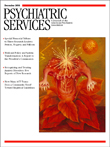Deborah Eisenberg's most recent book, Twilight of the Superheroes, is a set of six thought-provoking, masterfully woven short stories that make for perfect coffeehouse reading. The unrelated stories recount the tales of disheveled characters floundering through various aspects of life, usually on the brink of chaos. Whether the breakdown is on the intrapsychic, interpersonal, or social level, each character faces his or her uncertainty with an emotionally blunted, philosophical pondering reminiscent of postmodern icon Douglas Coupland. This is a psychologically minded, if somewhat jaded, book that beautifully explores the subtle interaction of one's deep feelings and candid thoughts in managing a world gone mad.
The first story, which shares the book's title, features a twenty-something who is searching for direction and authors a comic about Passivityman, an uncommon superhero charged with saving the world from the evil Captain Corporation. He and his uncle, a member of New York City's upper social echelon, struggle through the grief and disappointment that flow from their difficult and complicated lives. The story, which is really a series of scene snippets, taps into New York's struggle after September 11, 2001, to regain or redefine normalcy. The psychologically savvy reader will recognize a dissociative fogginess that plagues the characters' attempts to gain their footing on social terrain that is constantly shifting. Their personal crises are exacerbated by the loss of safety and security characteristic of the world after September 11.
Two other stories, "A Flaw in the Design" and "Some Other Better Otto," dive into maddening family dynamics that threaten the character's sanity and sense of personal goodness. Most readers will find threads of personal experience in the missed communication and frustration that the characters experience. These stories are an exercise in depth rather than breadth. Not a lot happens, yet the reader gains an intimate perspective on the characters' inner workings. In so doing, the reader experiences in part the anguish of toxic family dynamics.
Eisenberg's characters are relatable and engaging, although at times they are somewhat flat affectwise. The latter reflects a world-weary mentality from facing too many absurdities to believe that with good effort all will be well. The book is intellectually provocative and abounds with discussion potential because it raises numerous current issues and social critiques without drifting into either prescription or proscription. The author's wry, ironic humor saves the reader from drifting into despair that otherwise could be induced by the mire of unsolvable problems portrayed. The nonlinear, punchy writing easily captures the reader and holds one's intrigue.
So stop by your favorite coffeehouse, pick up a cappuccino, and settle yourself in for a journey with superheroes. If you're not careful, you may recognize your own life in surprising twists and turns along the way.

